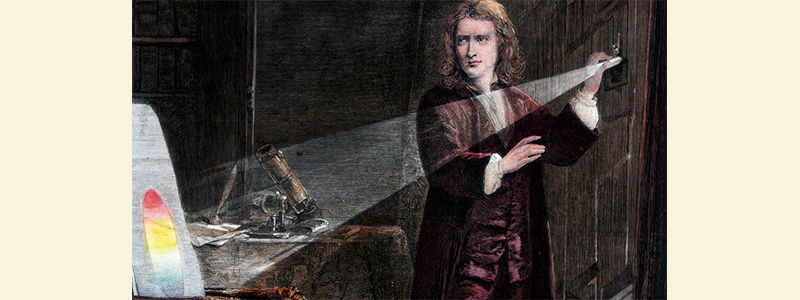Centuries ago, the plague forced people into quarantine for years. Isaac Newton and Galileo used the time to revolutionize the world.
||| FROM BIG THINK |||
As we begin a new year — and a third year enshrouded in the COVID-19 pandemic — tempers are running short and frustration is mounting. A lot of loss and pain have happened and continues to happen, as we wonder how it is possible that we can send a giant space telescope to peruse the birth of the first stars some 13 billion years ago but still cannot figure out how to end this affliction. We could, of course, be way ahead of the game if people were less divided in the ways they deal with the crisis. We do have the vaccine, after all, and know that masking protects those around you from contamination. But people are complicated, and the mix of helplessness, anger, political polarization, and scientific illiteracy is explosive.
Given the heaviness of it all, perhaps it would do us some good to look at other pandemics from the past to explore what they gave us. Pain, loss, and the forced seclusion that come during pandemics have nurtured some of the greatest works of the Western canon, both artistic and scientific.
The Black Death of the 14th Century
Francesco Petrarch, the Italian poet and scholar, lived through the deadliest pandemic in recorded history, the Black Death, which killed an estimated 200 million across Europe, Asia, and North Africa from 1346 to 1353, periodically returning in new waves for decades after. This is also when Petrarch’s friend Giovanni Boccaccio wrote his Decameron, one hundred tales to entertain desperate Florentines who fled to the countryside to protect themselves.
The Renaissance would soon burst in Italy, finding its early voice through the sufferings of the plague as related by Petrarch. “The year of 1348 left us alone and helpless,” he wrote in his Familiar Letters. We forget how easy it is for us to use our devices to communicate with family and friends across vast distances from the safety of our homes. To Petrarch and Boccaccio, all had to be done in person or in writing with uncertain delivery, forcing a solitude we cannot even contemplate. A letter not answered could mean the death of the intended recipient. Still, Petrarch found solace in writing letters to friends and bringing back to life the great thinkers of Greek and Roman antiquity, as they made the absent present (as Cicero famously wrote). And in creating immortal works of art through poetry and prose, he inspired and nurtured his readers through the difficult dynamics of living and dying.
17th century plague galvanized Galileo
At the end tail of the Renaissance, almost 300 years after Petrarch, the plague was back in Italy, courtesy of the Thirty Years’ War that devastated central Europe. This is the time of Galileo’s confrontations with the Roman Inquisition, as he insisted in pushing forward his Copernican worldview that the sun, not the earth, was at the center of the solar system. His book Dialogue Concerning the Two Chief World Systems offered a very biased discussion on the arrangement of the planets, clearly favoring a sun-centered cosmos.
In 1630, a Dominican friar supportive of Galileo’s views granted approval to the manuscript, after some revisions. This is when the plague hit Italy again, forcing people to curb their traveling and isolate in place. Galileo saw an opportunity. He managed to get the manuscript shipped from Rome to his home in Florence, but in separate parts. Seeing the approval from the censors in Rome, the censors in Florence rubber-stamped the process, and the book went to print even before the last parts arrived in Florence.
When the pope saw the end result, he was furious. Galileo had added a requested revision by admitting that God, through a miracle, could make the sun go from east to west every day. (It’s not the sun that moves, but the earth that rotates.) But he did so in a mocking way, an affront the pope was not ready to swallow in a time of confrontation between Catholics and Protestants. The book was censored and Galileo forced to abjure his heliocentric view of the cosmos. Still, copies of the book leaked out of Italy, and the Copernican revolution took flight.
READ FULL ARTICLE: https://bigthink.com/13-8/plague-genius
**If you are reading theOrcasonian for free, thank your fellow islanders. If you would like to support theOrcasonian CLICK HERE to set your modestly-priced, voluntary subscription. Otherwise, no worries; we’re happy to share with you.**







